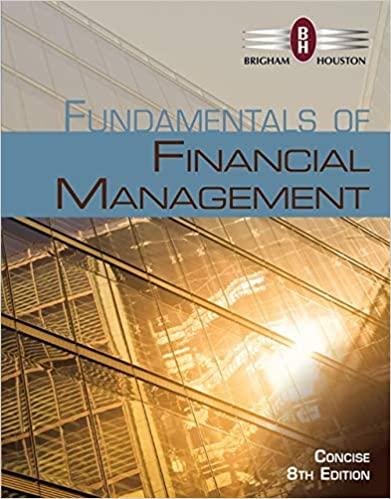Question
Please dont make it sound really professional Write 250 words read Chapter 18,Section 2called The Scope of Change and make an initial post describing a
Please dont make it sound really professional
Write 250 words
read Chapter 18,Section 2calledThe Scope of Changeand make an initial post describing a change you experienced; the scope or scale of change referenced in the textbook; and the attitude, mood, and behavior demonstrated by yourself and others following the change that occurred.
The Scope of Change
Change can be of a relatively small scope, such as a modification in a work procedure (anincremental change). Such changes are a fine-tuning of the organization. For example, Intel and other chip producers must continually upgrade their manufacturing equipment just to stay competitive. Intel's conversion of an Arizona fab (a chip-making plant) from older to newer technology cost $3 billion.While radical change is more exciting and interesting to discuss, most organizational changeand therefore most research on organizational changehas focused on evolutionary (incremental) rather than revolutionary change.Change can also be on a larger scale, such as the restructuring of an organization (astrategic change).In strategic change, the organization moves from an old state to a known new state during a controlled period of time. Sometimes strategic changes work; sometimes they don't. YouTube was a startup that was acquired by Google for $1.65 billion, and Google altered YouTube's strategy by going after premium content providers such as ABC, NBC, and CBS. In addition, a partner program was launched that allowed popular users to share in the advertising revenue their videos generated. This change in strategy has not worked, however. Although it now has one billion viewers, YouTube has yet to become profitable. Some say that a new strategy is needed that focuses on attracting a broader audience beyond young people.
The most massive scope of change istransformational change, in which the organization moves to a radically different, and sometimes unknown, future state.In transformational change, the organization's mission, culture, goals, structure, and leadership may all change dramatically.Just over a century ago, two successful bicycle makers decided to leave the safety of their business to devote time to building and selling an amazing new inventionthe airplanewhich transformed travel, warfare, and communications around the world. The Wright brothers transformed not only their bike business but the whole world! Of all the tasks a leader undertakes, many say that changing the form and nature of the organization itself may be the most difficult, an observation supported by research.
One of the toughest decisions faced by leaders is the proper pace of change. Some scholars argue that rapid change is more likely to succeed than slower change because it creates momentum,while others argue that these short, sharp changes are actually rare andnot experienced by most firms.Still others observe that change in a large organization may occur incrementally in some parts of the firm and quickly in others.In summary, researchers agree that the pace of change is important, but they can't quite agree on which pace of change is most beneficial.
One thing that both researchers and managers alike can agree on is the increasing volatility, interconnection, and uncertainty in business. These changes demand that leaders understand what it takes to lead in a fast-paced and ever-changing world. Complexity leadership means leading both people and organizations so that they handle complex changes with adaptability and resilience.
Step by Step Solution
There are 3 Steps involved in it
Step: 1

Get Instant Access to Expert-Tailored Solutions
See step-by-step solutions with expert insights and AI powered tools for academic success
Step: 2

Step: 3

Ace Your Homework with AI
Get the answers you need in no time with our AI-driven, step-by-step assistance
Get Started


